Export Procedures
S&H Core Courses
Our full day and 2-day S&H favourites are here to deliver a broader knowledge on either a more advanced subject or coveringan a range of subjects at a beginner level. These full day courses are always hosted live, to allow for interaction and questions, they can be held face to face or in a virtual classroom environment.

Understanding Origin & Preference
This interactive workshop clarifies the difference between origin and preferential origin, emphasising their role in trade compliance. Through case studies and exercises, participants will learn about essential documentation, declarations, and compliance verification for preferential rules in trade agreements. With the increase in HMRC audits, this session equips businesses with the skills to confidently manage origin determination and ensure compliance in both import and export activities.

Beginners Guide to Exporting & Importing
This engaging and informative one-day course will introduce you to the world of exporting and importing and focus on the terms and practices used through interactive exercises and activities. This will give you an insight into how goods are bought and sold worldwide.

Beginners Guide to Customs Procedures
This course focuses on the practical aspects of UK Customs procedures. It covers the crucial areas of Customs compliance and provides a comprehensive overview of the Customs Special Procedures that exporters and importers can utilise to save import duties and taxes. In the post-Brexit era, organisations are under increased pressure to demonstrate their understanding of Customs procedures to HMRC, and this course equips you with the knowledge and skills to do just that.

Export Essentials: An Introduction to Exporting
Following on from the Beginners Guide to Exporting and Importing, this interactive session covers the critical areas of exporting goods. It covers essential details about the Incoterms® rules, export documentation, and working with freight forwarders to ensure goods are correctly declared. It is ideal for anyone whose job has an export connection, whether in sales, contracts, finance, shipping, or for a managerial overview.
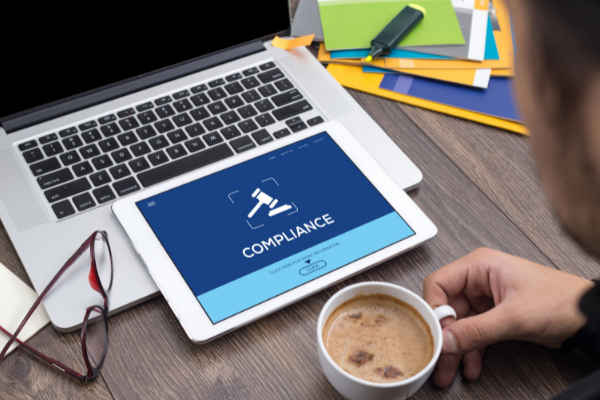
Beginners Guide to Export Licensing Controls
Following on from the Beginners Guide to Exporting and Importing, this interactive session covers the critical areas of exporting goods. It covers essential details about the Incoterms® rules, export documentation, and working with freight forwarders to ensure goods are correctly declared. It is ideal for anyone whose job has an export connection, whether in sales, contracts, finance, shipping, or for a managerial overview.

Applying for and Using UK Export Licences
This practical session provides the necessary information for applying for individual licences and helps you determine when an open licence is suitable for specific movements or transfers of controlled items. The workshop is designed to instruct participants on using the UK export licensing system.

Preparing for a Customs Audit
This course provides a comprehensive overview of export control compliance for businesses requiring export licenses. It prepares UK exporters for regular audits by the ECJU, ensuring they can demonstrate compliance with their licenses. The course covers the requirements and considerations for audit preparation and ongoing self-audits.

Advanced Guide to Import, Export & Customs Procedures
The course aims to guide you to a higher standard of compliance with import and export legislation. After attending, delegates will leave with greater confidence in updating/reviewing existing procedures, talking to logistics providers, and explaining complicated issues in a simple way to other business areas.
Focus On Courses
Channelling our expert knowledge on a specific subject to deliver a in-depth training session. These half and full day training courses are aimed at delegates with a basic understanding of customs procedures and international trade.
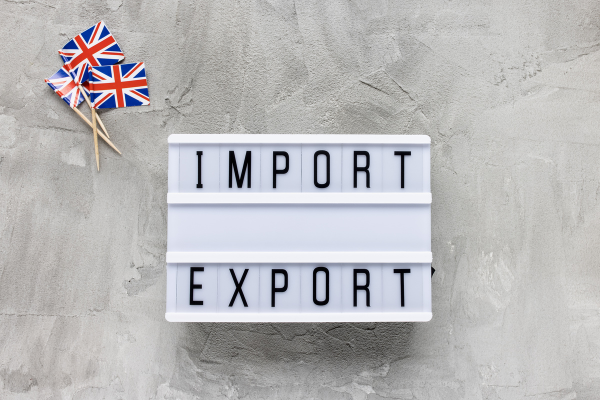
Focus On: Temporary Imports & Exports
This course is designed for those handling temporary movements of goods, whether for demonstrations, exhibitions, testing, or repairs. Participants will learn the customs and commercial processes required to manage these movements, ensure compliance, and minimise unnecessary costs. Whether goods are hand-carried or sent as unaccompanied freight, the course covers the necessary export and import declarations to manage temporary shipments and avoid customs delays effectively.
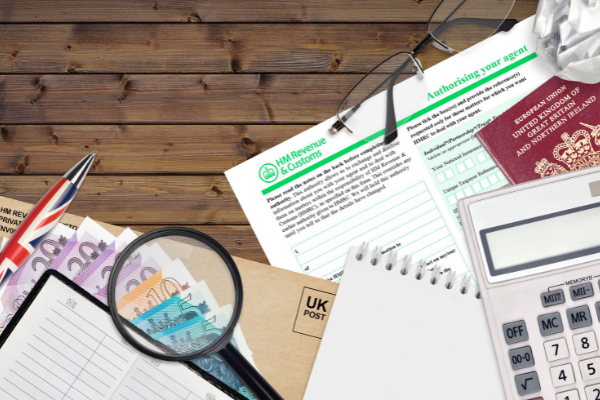
Focus On: AEO and Trusted Trader Scheme
This presentation focusses on what the HMRC Authorised Economic Operator Status accreditation is, but more importantly, examines whether being an AEO will benefit your own organisation or if staying outside the AEO system will have a detrimental effect on your business. AEO status was introduced in the EU in 2008 and is now part of UK legislation and will be linked to the new border management system coming into force the Trusted Trader Scheme.
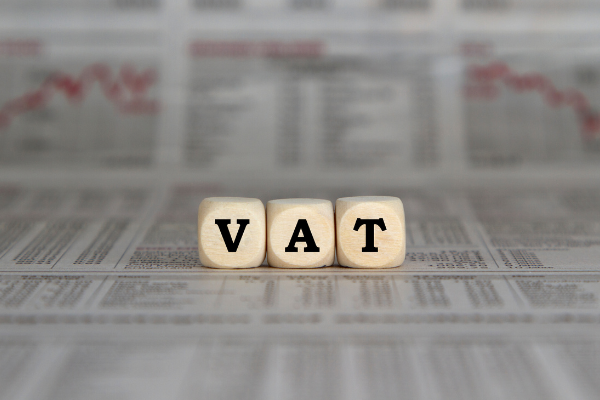
Focus On: VAT in International Trade
This session provides essential guidance on managing VAT in international trade. Participants will learn about UK VAT zero-rating for export supplies, required evidence, VAT obligations for receiving supplies, handling import VAT, and postponed VAT accounting (PVA). The course also covers reclaiming import VAT and when a UK business needs VAT registration in foreign markets, including the EU. Gain practical knowledge to ensure compliance and streamline your VAT processes.

Focus On: ATA Carnets - A Practical Guide to Applying for and using
Since the UK departed from the EU, there has been a growing need to manage temporary movements of goods. If you're involved in sending or receiving items for purposes such as demonstration, exhibition, testing, or using professional equipment, the Passport for Goods may be worth considering. This half-day session will introduce you to the ATA Carnet Scheme, an international system designed for the temporary movement of goods.

Focus On: Incoterms® 2020 Rules
Engaging in global trade can expose companies to increased risks and costs, such as lost goods, unnecessary delays, and disputes. Clearly defining responsibilities within the supply chain can mitigate these issues, which is the purpose of the Incoterms® Rules that have been in place since 1936. However, Incoterms® are often misunderstood and misapplied. Ensure you are utilising them correctly by participating in our full-day interactive course.

Focus On: Preparing for an Export Control Audit
This course provides a comprehensive overview of export control compliance for businesses requiring export licenses. It prepares UK exporters for regular audits by the ECJU, ensuring they can demonstrate compliance with their licenses. The course covers the requirements and considerations for audit preparation and ongoing self-audits.

Focus on Food: Export Procedures
This newly launched course is designed to meet the rising demand for specialised training in the export processes specific to food and drink products. It offers comprehensive guidance on navigating the complex regulatory landscape, including an in-depth look at the key regulatory bodies involved in the export process, their functions, and the specific requirements they impose on exporters in the food and drink sector.

Focus On: Understanding Free Trade Agreements
This session is essential as the UK develops independent trade arrangements to boost imports and exports. It covers foundational concepts of FTAs and PTAs and examines their structure, purpose, and key elements, like rules of origin, with emphasis on the EU-UK Trade and Cooperation Agreement (TCA). This course empowers professionals to navigate international trade confidently and leverage FTAs for a competitive advantage.

Trading With The USA: An Introduction to Defence Exports
This interactive training course is designed for companies in the Defence, High Technology, and Military sectors, focusing on navigating the complex US export controls. Participants will learn about the regulations under the EAR and ITAR, addressing compliance requirements for UK exporters. The course covers the necessary internal procedures to follow when exporting US-controlled goods, helping to avoid potential fines, penalties, and the risk of being denied the right to trade with the USA.

Focus On: Dual Use Export Compliance - The Dual-Use Exporter
This full-day session focuses on dual-use regulations, a topic relevant to many industry sectors. With licences required for dual-use items moving between the UK and EU, the need to understand this topic has grown significantly. The controls are based on an item’s inherent capability, type of materials, or technical ability, affecting many industry sectors.
Technical Workshops
Are you looking to learn a particular skill? Our technical workshops cover a range of topics and aim to enable the delegates to come away with a practical skill, such as how to complete an export entry or knowing how to classify goods. You can expect to spend some time in breakout rooms when learning in the virtual classroom to work on practical examples of what has been covered in the presentation.

How to Complete Export Entries
This workshop is designed to equip you with the knowledge and skills to complete export Customs entries in the UK. It provides delegates with an understanding of how to build the data entry information, which data elements are essential, and how to declare license information. By the end of the course, you will have the knowledge to complete a basic export Customs entry and the confidence to build on this to submit more complicated entries. This is important whether you are an agent or an exporter.
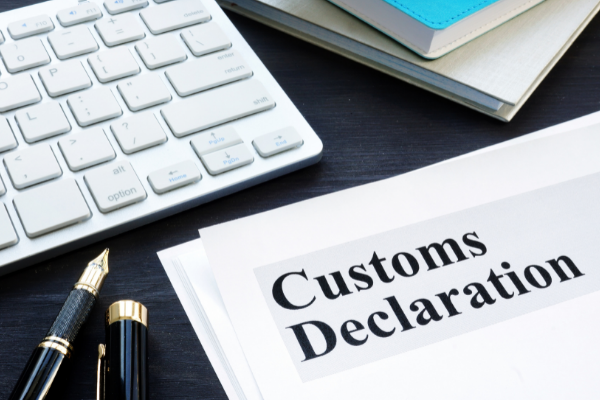
Advanced CDS Technical Workshop: Exports
This advanced workshop will not only teach you how to create an export declaration on the Customs Declaration Service (CDS), but also provide you with the confidence to do so effectively. Each data element group will be thoroughly explained, with illustrative examples provided. Our technical advisors, with their extensive experience in multiple software solutions for CDS entries, will equip you with the practical knowledge to complete Customs export declarations.
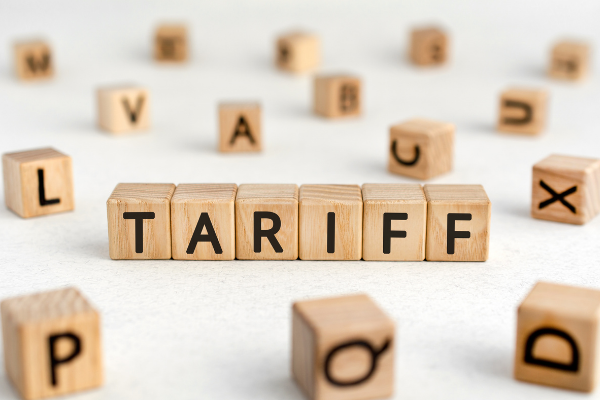
Tariff Classification Explained - Technical Workshop
In this workshop, participants will learn why the tariff is essential for accurate commodity code classification and its connections to other vital trade measures. The course explores the structure of the Harmonised System (HS) and includes interactive sessions to help you master the classification of your goods. You’ll gain an understanding of section and chapter notes, as well as when and how to apply the General Interpretative Rules (GIRs), ensuring confidence and accuracy in tariff classification.
Face to Face Courses
All of our Face to Face training courses are delivered in a Covid-19 secure training room. The safety of our trainers & clients is of upmost importance to us. Our Face to Face courses will be limited to a maximum of 10 delegates.

Beginners Guide to Exporting & Importing
This engaging and informative one-day course will introduce you to the world of exporting and importing and focus on the terms and practices used through interactive exercises and activities. This will give you an insight into how goods are bought and sold worldwide.

The Export Course
This two-day course is an ideal progression for those who have completed Export Essentials, the Export/Import Practitioner Learning Pathway, or individuals with experience in export operations. It provides a clear, practical, and thorough exploration of the core aspects of export procedures tailored to today’s trade environment.

Tariff Classification Explained - Technical Workshop
In this workshop, participants will learn why the tariff is essential for accurate commodity code classification and its connections to other vital trade measures. The course explores the structure of the Harmonised System (HS) and includes interactive sessions to help you master the classification of your goods. You’ll gain an understanding of section and chapter notes, as well as when and how to apply the General Interpretative Rules (GIRs), ensuring confidence and accuracy in tariff classification.

Export Essentials: An Introduction to Exporting
Following on from the Beginners Guide to Exporting and Importing, this interactive session covers the critical areas of exporting goods. It covers essential details about the Incoterms® rules, export documentation, and working with freight forwarders to ensure goods are correctly declared. It is ideal for anyone whose job has an export connection, whether in sales, contracts, finance, shipping, or for a managerial overview.

Understanding Origin & Preference
This interactive workshop clarifies the difference between origin and preferential origin, emphasising their role in trade compliance. Through case studies and exercises, participants will learn about essential documentation, declarations, and compliance verification for preferential rules in trade agreements. With the increase in HMRC audits, this session equips businesses with the skills to confidently manage origin determination and ensure compliance in both import and export activities.
About Our Courses
Aimed at all levels of understanding, these courses range from the basics of completing an export customs declaration, to a more detailed look at the HMRC CHIEF computer system and the Customs Declaration Service (CDS), right through to in-depth workshops dealing with the subject of export procedures, including export control legislation, and dealing with Letters of credit.
Don't forget that Strong and Herd can also provide you with bespoke in-house training to suit your specific training needs. Simply contact us to discuss your complete requirements.
FAQ's
- We export goods to India from Felixstowe, via Rotterdam, where they are transhipped from a feeder to a deep sea vessel. Should the Felixstowe to Rotterdam stage of the shipment be reported under Intrastat?
No. Your intention is to export the goods out of the EU, and you must therefore complete normal indirect export formalities for shipment of the goods from the UK to India. This means completing an Export Accompanying Document (EAD) as the partial export entry in the UK and this must accompany goods to Rotterdam. It will be used there by the Dutch authorities to complete the export entry outside the EU. You should ensure the EAD has been completed within 15 days of opening by using the Europa MRN transit database http://ec.europa.eu/taxation_customs/dds2/ecs/ecs_home.jsp?Lang=en NB: Goods being imported into the UK from outside the territory of the EU may legally be cleared at the first EU port of call (often Rotterdam bound for the UK). The onward journey to the UK could be reported under Intrastat; however, it is preferable that the appropriate import documentation is used to cover the whole journey from the extra-EU country (e.g. India) to the UK, including transhipment in the original port of arrival in the EU. In the case where Rotterdam is the port of transhipment, the goods were never intended to be imported
into Holland and clearance there, with an onward Intrastat movement to the UK, can skew Dutch trade statistics.
- Is it true that the marking of goods with the country of origin isn't just a requirement for Saudi Arabian shipment but also for other countries in that part of the world?
Several freight forwarders and the Arab-British Chamber of Commerce have been reminding exporters to the Gulf Cooperation Council (GCC) Countries from EU Member States that it is necessary that the actual name of the Country of Origin is written on the goods. The phrase European Community (EC) should be supplemented by the name of the actual member state. This is said to apply to: Bahrain, Kuwait, Oman, Qatar and the UAE, as well as Saudi Arabia.
- We are exporting goods to South Korea and they have asked for a certificate of origin. We are not the manufacturer of the goods, they were made in USA. Firstly, can we say they are UK origin even though we have only re-packaged and re-labelled the goods? If not, can we issue an EC Certificate of Origin if the goods do not originate in the EU?
To answer your first question first, you cannot change the origin of goods by repacking. For goods to change origin you must do more than handling, they must undergo a process that is substantial enough to change the product, components or raw materials imported and add value. Origin rules (note: we do not mean preference, nothing to do with filling in EUR1 Forms) are governed by the Department for International Trade but you can receive guidance from most Chambers of Commerce. The second question is answered simply with a yes. You can issue an EC Certificate of Origin (CofO) even if the goods are not EC Origin. To expand on this, the EU in the title of the form means this form, in the same style, is used in all the member states of the EU – it does not mean that goods mentioned on it must be of EU origin. To apply for a certificate of origin you must present the completed EU CofO with your shipping invoice and, because you are not the manufacturer and the origin is not UK, you must provide evidence of USA origin. This can either be a copy of the purchase order, the original supplier’s invoice or, in some cases Chambers will accept a statement from the manufacturer confirming origin.
- We have a problem in Malaysia with a shipment we sent under an ATA Carnet. The goods were for demonstration purposes only and should have returned to the UK after a month or so. The company in Malaysia like the goods and wants to place a very lucrative order but they also want to keep the demo item and our sales manager has agreed. I have been tasked with sorting out the Carnet. Any help will be appreciated.
As you are aware, a Carnet (French for book of tickets) is for temporary movement of goods only. If anything goes wrong then it will cause some problems. Our advice is to notify the issuing Chamber of Commerce in the UK as soon as possible so they can guide you through the cancellation procedure. Cancellation of a Carnet has to be negotiated with customs in the overseas country where the goods are to remain. The temporary import entry that has been made against the carnet
voucher needs to be amended to a permanent import with full payment of import duties and taxes. You will need assistance from your new Malaysian client to succeed. On payment of full duty/tax a "Duty receipt docket" should be issue by Malaysian Customs along with a stamped declaration of import. The re-export voucher of the carnet will not be irrelevant but ask Malaysian customs to duly stamped and endorse it as “cancelled/ duties paid”. The carnet should then be returned to the UK and submitted to the issuing chamber with a letter of explanation.
You could be charged a fine or penalised in some way for this “mis-use”, eg the chamber may refuse to grant further carnet to the company or hold on to your guarantee for the full 33 months.
- A customer in Saudi has asked for our contract to be legalised, what does this mean?
Legalised means the document in question must be stamped by the Embassy of the overseas country. This is standard practice for countries in the Arab League, like Saudi, but generally only is only requested for invoices and certificates of origin. You can get your contract legalised by sending it through the Chamber of Commerce for endorsement or by using a Consular Service. There will be a legalisation fee chargeable.
- We have had a question from a customer in the USA. Our terms of sale are DDP Lakewood and the forwarder invoices us with USA duties. The question our customer has asked is - are we the Importer of Record? Are we?
The “importer of record” is a legal status giving responsibilities under US law to the party named on the import declaration. Normally this party is resident in the USA and has placed power of attorney (POA) with a US customs broker to make declaration on their behalf.
A company not resident in the USA can also give power of attorney to a US customs broker. If you have done this your company is the “importer of record” but the customs broker (forwarder) is the Principal Party in Interest – in other words they are the resident party who would receive any queries/ fines from US Customs.
If you have never signed a power of attorney (POA) then one of the following might have happened:
You are using a fast parcel operator, e.g. Fedex/UPS/DHL and because the goods are below their accepted threshold they are acting as the broker under their own rights to make the customs declarations or; Although you are paying the customs duty and tax into the USA when the declaration is submitted to US customs the broker is using another company’s POA and IRS (Inland Revenue Service reference) – perhaps your customer’s. This would make the customer the “importer of record” with charges billed back to the UK.
I’m afraid you may have to contact the customs broker in the US to find out what they are doing. You have probably grasped the fact that the “importer of record” has the legal
responsibility for the import consignment which would include compliance with the USA chemical regulations. Hope this gives you something to work on.
- Our customer in Brazil has asked us to remove the tariff code number from our invoice because it causes problems at import. Can you explain this; all our invoices show the tariff code.
It is possible that the tariff number you quote on your invoice does not correspond to codes used in Brazil. Although Brazil use the same basis for their tariff (Harmonised System) and will have the same first 4-digits in their tariff they do not use exactly the same 8 digits as the EU. If Brazilian Customs cannot relate the code you quote to their regulations this could delay import and potentially lead to problems and increased duty charges being levied. It is not a legal requirement to have the tariff number on the invoice at export so remove it, but ensure you still notify the freight forwarder in writing of the correct code so they can complete the export declaration correctly. This situation may apply to other countries outside the EC. You can view most countries’ tariff codes and duty rates by accessing the EU Market Access Database web-site (http://mkaccdb.eu.int); it is not on the worldwide web as access is restricted to EU companies only.






